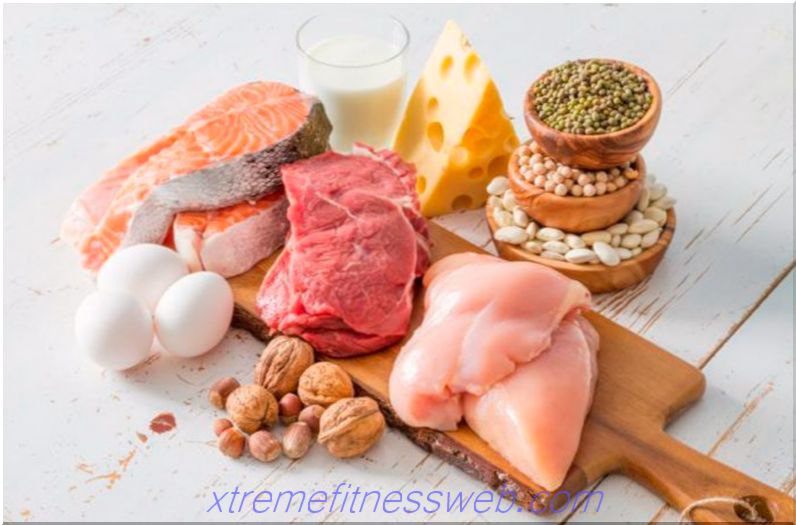- How much iodine does a person need per day?
- What foods contain iodine?
- How is iodine deficiency ">
- the person becomes irritable;
- migraines are observed;
- the ability to concentrate is reduced;
- reduced performance.

Iodine deficiency and excess weight
- Why the lack of iodine is dangerous ">

What threatens an excess of iodine "> Do I need to take iodine-containing drugs?
- Iodine in the body - Video

For the normal functioning of the body, a person needs the intake of certain elements with food. In particular, it is necessary that the diet contains foods rich in vitamins, macronutrients and trace elements. One of the most important elements for human health is iodine . The normal functioning of the pancreas, the most important organ responsible for digestion and the regulation of blood sugar, is impossible without iodine. In addition, iodine is important for the thyroid gland, which is responsible for the functioning of the central nervous system, the process of absorption of fats and carbohydrates, as well as for the condition of the skin and hair.
Content
- 1 How much iodine does a person need per day "> 2 What foods contain iodine?
- 3 How is iodine deficiency manifested?
- 4 Lack of iodine and overweight
- 5 Why is iodine deficiency dangerous?
- 6 What threatens an excess of iodine?
- 7 Do I need to take iodine-containing drugs?
- 8 Iodine in the body - Video
How much iodine does a person need per day?
Hormones produced by the thyroid gland are directly involved in the development of central nervous system cells, as well as skin and hair, so pregnant and lactating women should receive the maximum dose of iodine. For them, the daily dose is about 210 mcg per day. 150 mcg of iodine is enough for an adult .
Children under the age of two are required to provide at least 50 micrograms of iodine. From two to six years, this dose should double. Well, students need about 120 mcg of iodine per day.
What foods contain iodine?
Most iodine is found in seafood . It is known that the inhabitants of the sea elements are able to accumulate iodine from salt water. In particular, only 150 grams of seaweed, or kelp, can provide a daily dose of iodine, which is necessary for an adult. A sufficiently large amount of iodine is contained in fucus, but in our country it is rather difficult to find this alga in stores.

The cod liver is quite rich in iodine. Only 100 grams of this product contains about 350 micrograms of iodine. Raw sea fish, such as flounder, halibut or herring, contain between 100 and 200 micrograms of a valuable trace element. A roughly similar amount of iodine is found in 100 grams of squid, mussels, oysters and shrimp.
It should be remembered that iodine is a rather unstable compound that can volatilize during heat treatment. Therefore, it is advisable to eat seafood not fried: it is recommended to stew or boil them.
Cheeses and shelf foods that contain about 11 micrograms of iodine per 100 grams of weight cannot be excluded from the diet. About 7 mcg of iodine is found in potatoes, carrots, tomatoes and sorrel.
Persimmons, strawberries, lemons and grapes contain no more than 5 micrograms of iodine per 100 grams of weight. Therefore, nutritionists recommend purchasing fruits and vegetables that are grown on soils enriched with iodine.
We must not forget about such a valuable food product as chicken eggs. One egg contains not only valuable proteins and fats for the body, but also about 12 micrograms of iodine.
Many people try to make up for iodine deficiency in the diet by using special iodized salt. Only two grams of such salt can completely replenish the daily volume of this valuable trace element. Iodized salt was invented in America, where at the beginning of the last century there was a significant increase in the birth of children with cretinism (a severe form of oligophrenia). Children with mental retardation were born in places where the soil, and therefore food, was not rich enough in iodine.
It is important to remember that iodized salt will be effective only if you salt the food after cooking. Otherwise, iodine will evaporate during heat treatment.
How is iodine deficiency "> - the person becomes irritable;
- migraines are observed;
- the ability to concentrate is reduced;
- reduced performance.

Iodine deficiency and excess weight
Hormones produced by the thyroid gland take part in a number of metabolic processes, in particular, in the breakdown and accumulation of fats and carbohydrates. In the event that there is a lack of iodine in the diet, the thyroid gland changes the mode of operation. In the process of evolution, a special mechanism has developed: in the event that the body is in danger in the form of food shortages, the endocrine system begins to "work" on the creation of reserves. As a result, fat deposits form, which often becomes the cause of obesity. At the same time, the production of growth hormones decreases: all metabolic processes in the body slow down in order to “wait out” a difficult period. This affects the work of the nervous system: a person becomes inhibited, his memory worsens and his ability to concentrate is reduced.
Why the lack of iodine is dangerous "> 
What threatens an excess of iodine "> Do I need to take iodine-containing drugs?
Only a doctor can decide whether a person needs to take iodine. Usually taking medications containing iodine is recommended:
- during pregnancy planning;
- during the gestation and breastfeeding of the child;
- newborns whose mothers suffer from iodine deficiency;
- during heavy mental stress (during exams or when working on important projects).
Iodine is one of the most important elements necessary for the normal functioning of the body. However, we must not forget that an excess of iodine is no less dangerous than its lack. It is important for each person to eat properly: only a balanced diet will provide the body with everything necessary for its normal functioning. Only a doctor can decide whether a person needs additional intake of drugs containing iodine.
Iodine in the body - Video








